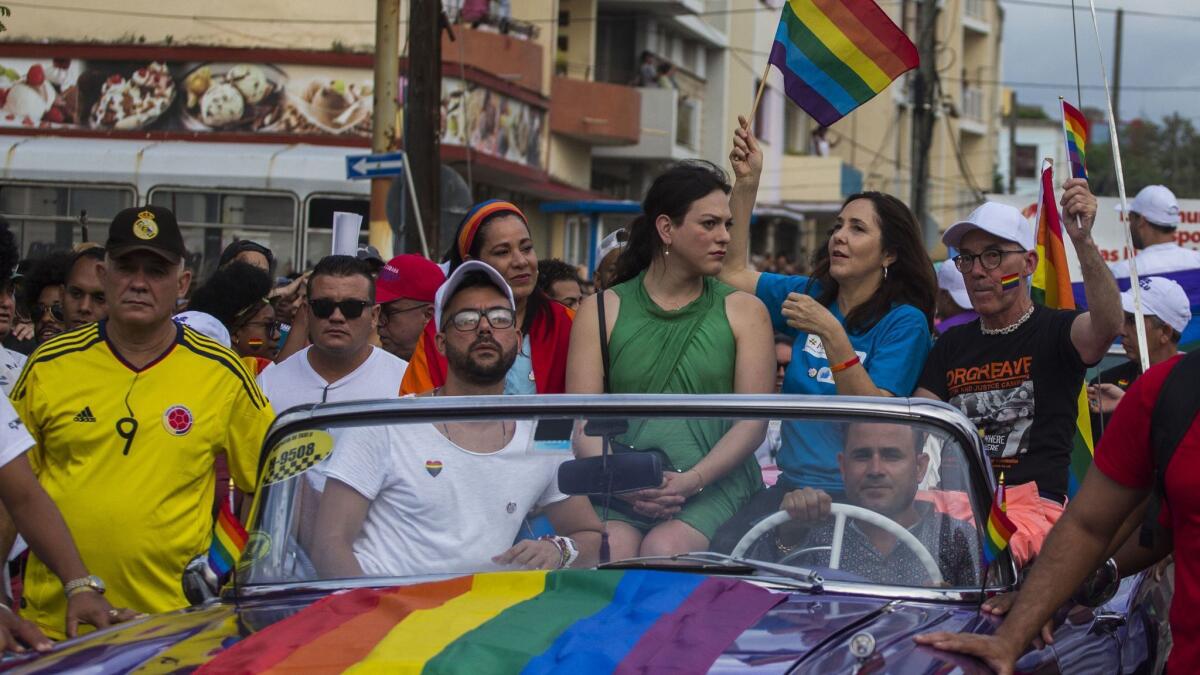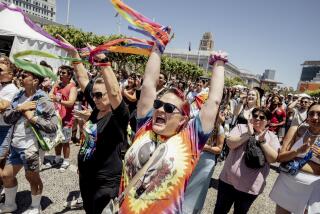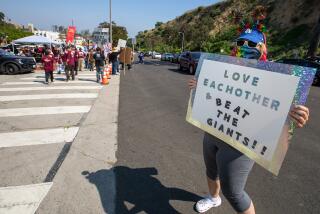Cuba cancels its annual gay rights parade, ‘Conga Against Homophobia’

- Share via
Reporting from Havana — The Cuban government announced Tuesday that it has canceled this year’s edition of a parade widely seen as a sign of progress on gay rights on the island.
The state-run Center for Sex Education headed by Mariela Castro, the daughter of Communist Party First Secretary Raul Castro, said in a Facebook post that the Conga Against Homophobia scheduled for an unspecified date this month had been canceled on orders of the Ministry of Health.
The statement attributed the cancellation to “new tensions in the international and regional context that directly and indirectly affect our country and have tangible and intangible impacts in the normal development of our daily life and the implementation of the policies of the Cuban state.”
The statement did not explain what that meant. Officials with the sexual education center, known by its Spanish acronym CENESEX, did not respond to requests for comment or said they didn’t know why the march was canceled.
Tensions with the United States are high over the situation in Venezuela, where the Trump administration wants to oust the Cuban-backed administration of President Nicolas Maduro. And Cuba’s economy is stricken by shortages in basic goods attributed in large part to a decline in subsidized oil from Venezuela.
It was unclear how either of those factors required the cancellation of a gay pride march, although Cuban officials tend to impose more controls of all types in moments when the country is perceived to be under threat. The issue of gay rights has become unusually controversial in Cuba in recent months because of resistance from the country’s growing ranks of evangelical Christians.
The Cuban government persecuted gays in the 1960s and 1970s but has since outlawed discrimination and come to be seen as relatively progressive on the rights of lesbians, gays, bisexuals and transgender people. The government funds gender reassignment surgeries, discrimination on the basis of sexual orientation is outlawed, and police receive training designed to avoid disrespectful treatment of homosexuals and transgender people.
The conga, a parade of hundreds of LGBT people waving rainbow flags and dancing down one of Havana’s main thoroughfares, became an internationally lauded symbol of Cuba’s acceptance of gay and transgender rights. A second parade was planned this year for the eastern city of Camaguey, as part of the 12th celebration of an event known as the Days Against Homophobia and Transphobia. The festival started Monday, lasts until May 18 and features workshops, seminars, film screenings and a cultural gala.
CENESEX said the cancellation of the march was only for this year, and could be revisited in 2020.
“It’s a government decision,” said group coordinator Malu Cano. “It’s nothing against us. Otherwise they would have suspended all of our activities.”
The government had proposed legalizing gay marriage in a constitutional reform that was approved in a February referendum but the item was removed after widespread resistance from a wide range of Cubans including evangelicals.
Alida Leon, president of Cuba’s Evangelical League, said her church and others in years past had requested permits to hold marches in favor of traditional gender roles at the same time as the gay rights march. She said the requests were rejected so the evangelicals did not request permission again this year.
More to Read
Sign up for Essential California
The most important California stories and recommendations in your inbox every morning.
You may occasionally receive promotional content from the Los Angeles Times.










